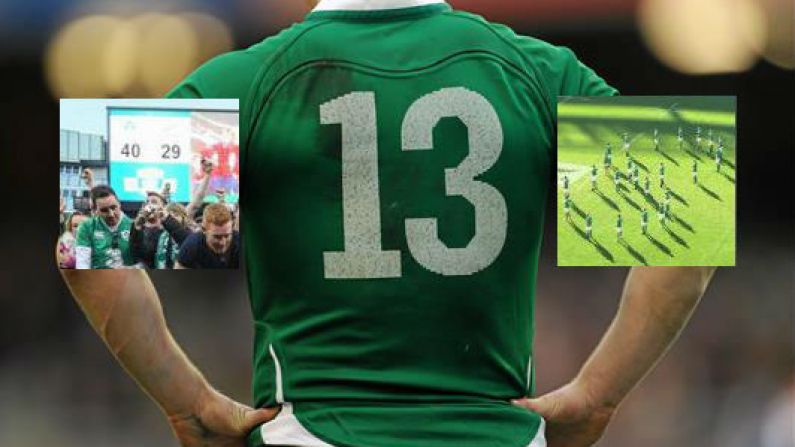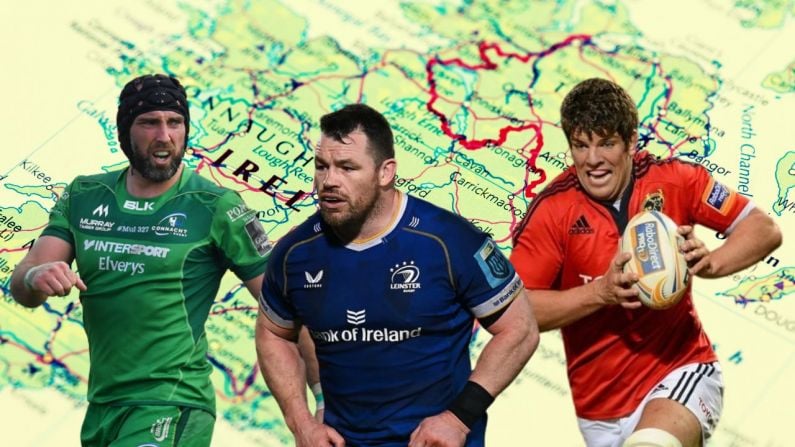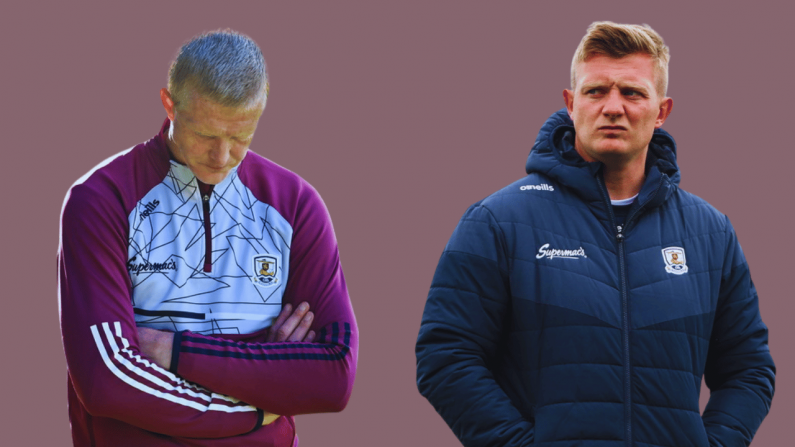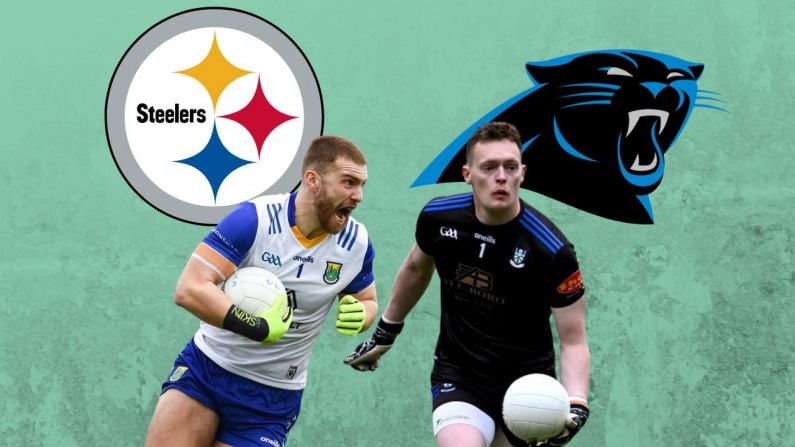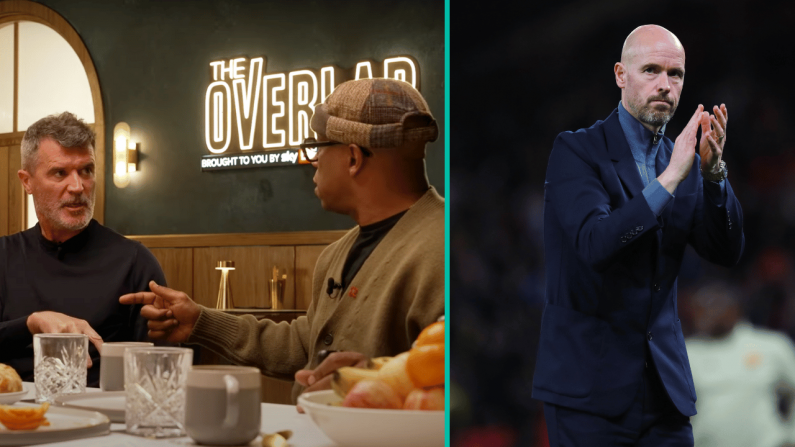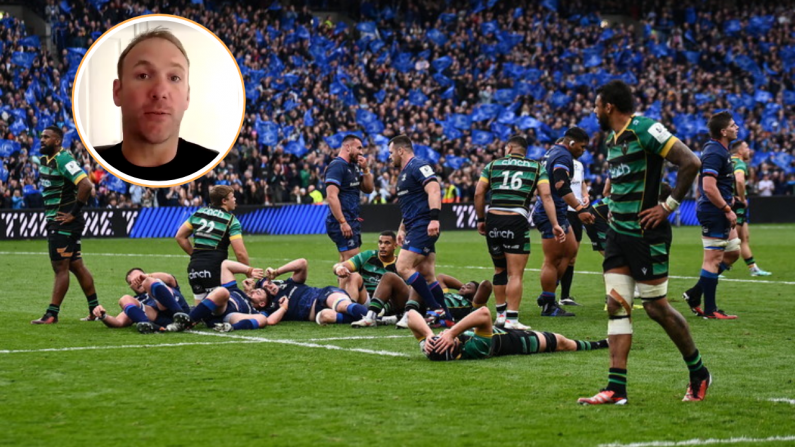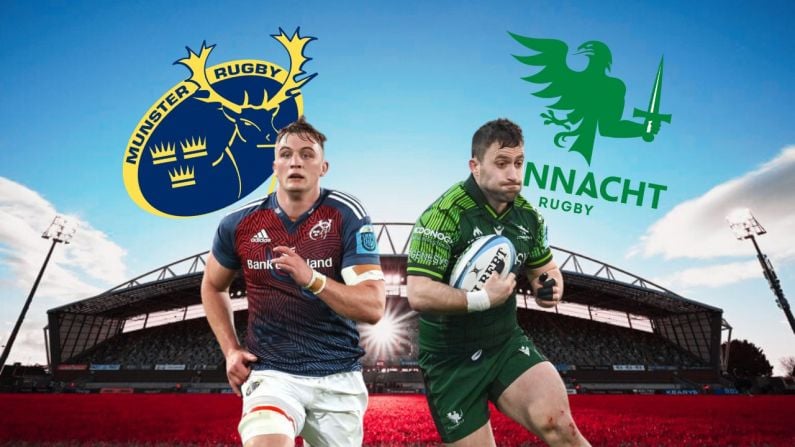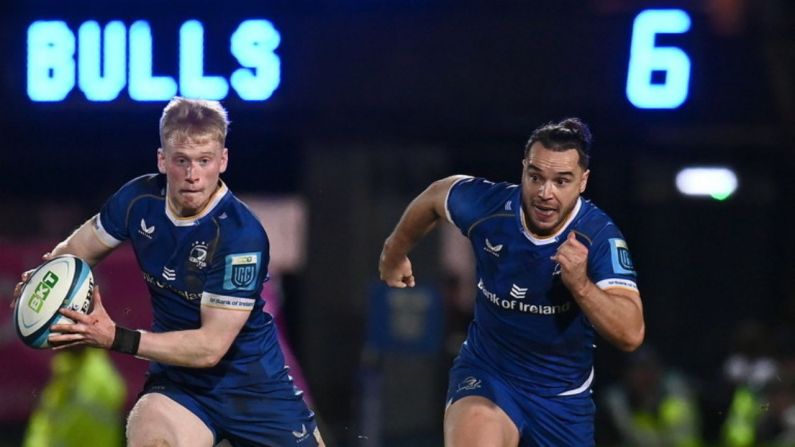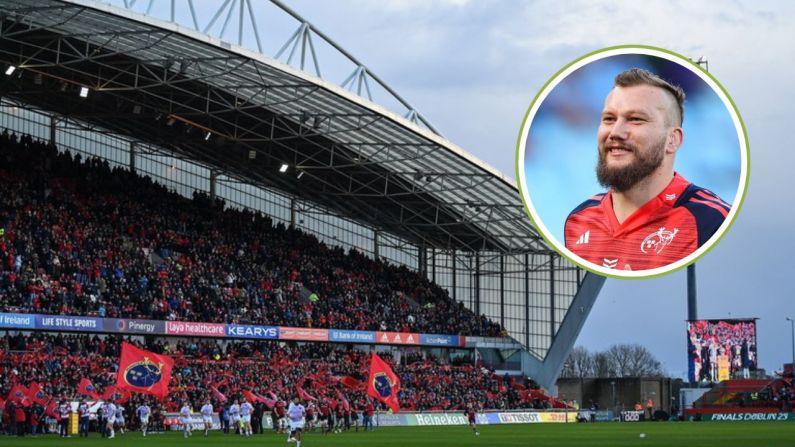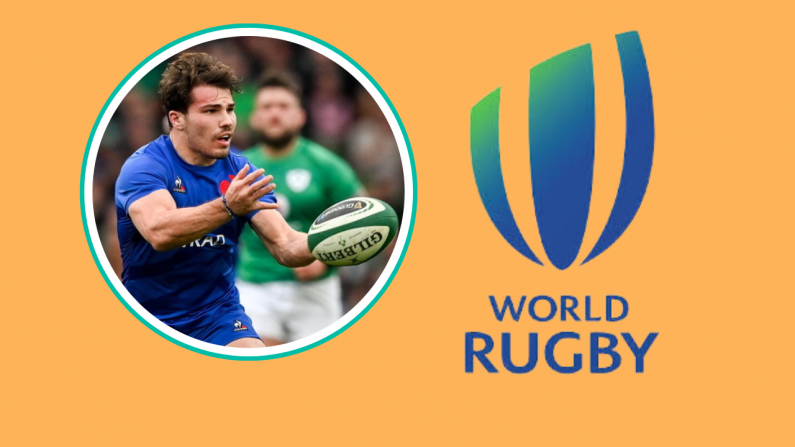If you haven't heard, there's a fairly massive Euromillions jackpot tonight, estimated to be €70 million! Now, we all have our own selection of lucky numbers, be them birthdays or even house numbers - but they've never worked for us before, so it's time for a new method. Given the other event that will have us all on edge all day today is Ireland's do or die Six Nations game against Wales in Cardiff - we wanted to look to the most important numbers in Irish rugby history to decide on our own selection.
It wasn't an easy choice.
Even the slightest error in judgement will ruin our chances of winning the Euromillions jackpot, so this is serious business. That said, after much debate and arguing, we've finally decided on the seven most important numbers in Irish Rugby, and tonight's lucky Euromillions numbers!
Starting with lucky number....
13
Of course. The number that's been worn by some of the greats of the past and future of Irish rugby, but a number that will always belong to one man only. Brian O'Driscoll's record number of caps (133) and his record number of tries (46) could have made the cut themselves, but everything those figures encapsulate are dwarfed by the number worn by Ireland's greatest ever rugby player.
3
Not just because of The Bull's tears or Tadhg Furlong's barreling over New Zealanders. Three is chosen because of "The Triple Crown" and how important it has been in the history of Irish rugby.
Beating England, Wales and Scotland in the same year has never been an easy task, but it became a holy grail of sorts for Ireland over the years.
In fact, after the Grandslam of 1948, Ireland went for an incredible 34 years before winning it again. If you ever wondered why the Triple Crowns of 1982 and 1985 were so historic and shown over and over again on RTE and TG4 for the next twenty-plus years, now you know why.
From there, it was back to the barren times. Those 80s games and teams became immortalised as Ireland fought against the Wooden Spoon over and over again. It was another 19 years before we finally managed it again.
In 2004, Gordon D'Arcy became a superstar, Ireland beat World Cup champions England in Twickenham, and took care of Wales and Scotland at home to finally win our seventh Triple Crown.
For the rest of the decade, winning Triple Crowns became second nature for Ireland's "Golden Generation" as we hoovered up eight, nine and ten in 2006, 2007 and 2009.
The most famous of these, as a Triple Crown specifically, came in 2006, when this happened:
By 2009 though, Irish fans had become blasé about Triple Crowns. We needed more.
Which brings us to...
48
Ireland's Grandslam of 1948 was all Irish rugby had to hang its hat on for 61 years. When we had our first Championship clean sweep that year, the term "Grandslam" hadn't even been invented.
Just like the team 61 years later, Ireland beat England by a single point and had to face Wales in the final game. The team was built around legendary out-half Jack Kyle, named by the IRFU as Ireland's greatest ever player back in 2002.
To generations of players and fans who've never seen him play, Kyle is someone we've heard spoken of in whispered reverence by those old enough to have seen him play. The 1948 season the high point of his incredible career and became his legacy.
He was there in 2009 to greet Brian O'Driscoll when we finally managed our second clean sweep of the Five/Six Nations Championship.
23
The number of players/heroes used by Declan Kidney in Ireland's 2009 Grand Slam campaign.
By 2009, 61 years was long enough. The elation of the Triple Crown has worn off somewhat after winning three in four years. We'd fallen short too many times, and it had become a millstone around our neck and a second prize consolation wasn't going to cut it.
That Ireland only used 23 players in the tournament is nothing short of amazing. Given the attritional nature of the competition in the modern era, this is unheard of.
It speaks to the togetherness of the team, the conditioning, and also the consistency of performance they displayed that so little was changed. Over the course of the five games, only four changes were made to the squad. Mick O'Driscoll replaced Malcolm O'Kelly on the bench for the third game against England and for the rest of the competition. Gordon D'Arcy was promoted from the bench in favour of Paddy Wallace for the final two games. Denis Leamy replaced Jamie Heaslip for the Scotland game, and was the back on the bench behind Heaslip for the trip to Wales. Four changes, 23 players, in five games of international rugby. Amazing.
1
The amount of times Ireland have beaten New Zealand. Important not because it's a number to be particularly proud of, but because it eliminates the biggest black mark on our rugby record book.
Before last November, we had played New Zealand in 28 Test Matches and lost 27 of them. A 10-10 draw in 1973 was all we had to hang our hat on. In reality, the 12-0 win by Munster in 1978 was the hook we actually used.
The "1"to replace the "0" came in the most unlikely of places, in Chicago, last November, three days before Donald Trump was elected President of the USA. And it was an amazing performance. If we were to finally beat the All-Blacks, we assumed it would be a gritty affair with Ireland hanging on until the bitter end, waiting for the whistle, the way we did unsucessfully back in 2013.
Instead, we turned on the style, scored five tries and put up 40 points on a team that hadn't lost a match in eighteen games, and haven't lost again since.
8
An important number for any rugby nation as the only number who's given it's name to an actual position on the field. That said, the number 8 gained an extra significance for Irish rugby last year with the sudden and shocking passing of Anthony Foley, the legendary Number 8 of both Munster and Ireland.
The way his passing galvanised the rugby community, Munster's incredible performances since, and the wonderful gesture above by the Irish players on that historic day in Chicago all go to show the impact the man had on those involved in the game. Like 13 for O'Driscoll, the number 8 will always be associated with Foley in Ireland.
42
Rule 42 - The GAA rule banning the playing "foreign sports" on GAA pitches, which was amended in 2005 to allow Ireland's soccer and rugby teams to play in Croke Park while Lansdowne Road was being redeveloped.
And so it happened that France were the first international rugby team to come and play in Croke Park in 2007, and the first to come to Croke Park and break our hearts. Thanks Vincent Clerc. More memorably was the visit of England a few weeks later and the utter furor that surrounded the playing of God Save The Queen in the home of the GAA.
Eventually, their anthem passed without incident, Amhrán Na BhFiann was an emotional rollercoaster, and we went out and hammered them in a way we couldn't have even have imagined.
It's one of the most famous days in Irish rugby, but the importance is probably more symbolic. Rugby's popularity in the country historically is sometimes underestimated by a fondness for "bandwagon" accusations in the Irish media, but there is no doubt that rugby now appeals to the masses in a way it didn't in the amateur era. The game was both excluded and exclusive in the past. This is changing (sometimes too slowly) but the conversation around that day in Croke Park is something that helped it along. Extinguishing battlelines between the different sports in Ireland and making it about the games we like rather than our entire culture is something that needs to happen even more. Rule 42, and its modification, and hopefully, eventually, its abolition, has moved this forward massively and is huge for the game of rugby in Ireland.
So there you have it, the luckiest numbers in Irish rugby. How you decide to play them is up to you!
Main Numbers: 1, 3, 13, 23, 48. Lucky Stars: 8, 42,
They have as good a chance as any others!

